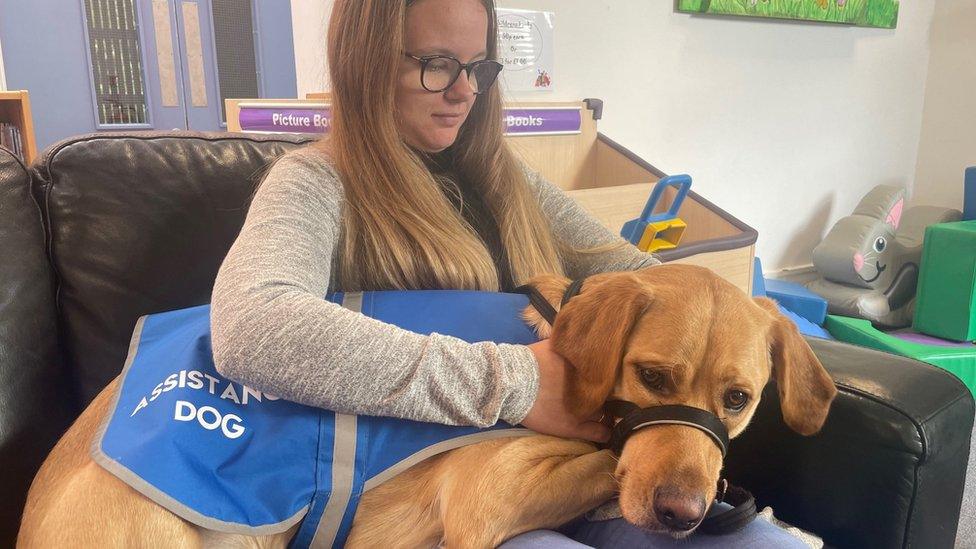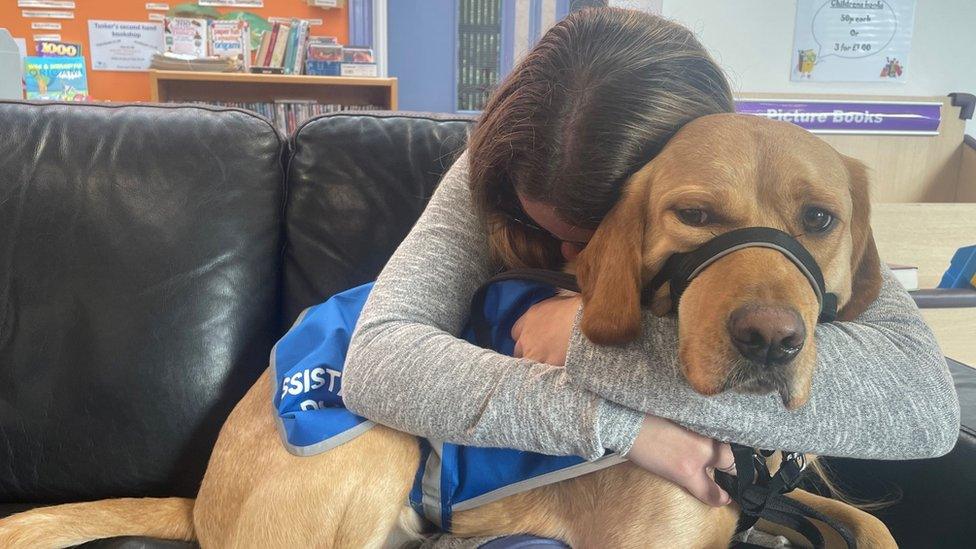Shropshire family calls for assistance dogs rule change
- Published

Sophie Noel said her dog Loki often helped her when she was in an overwhelming environment
A family is calling for recognition for owner-trained assistance dogs.
Sophie Noel, 22, from Craven Arms, Shropshire, is autistic and trained her own dog Loki to help her when she feels anxious or overwhelmed.
But self-trained dogs are not recognised everywhere, and her family is calling for it to be possible to get certification so they can fly together on holiday.
The government has been approached for comment.
Sophie, who said being autistic could "be difficult sometimes", added two-year-old Loki was "everything" to her.
"Everything is a challenge, I spent a lot of time wanting to be like everybody else and not understanding why I struggled with things that other people didn't seem to struggle with," she said.
She trained Loki herself and said he supported her when she felt anxious and helped keep her grounded if she was somewhere loud or overwhelming.

Sophie has had Loki for two years and said he meant "everything" to her
Being able to take Loki on a plane, she said, would mean she could enjoy holidays with her family.
Her mother Rachel said: "She realised the world isn't so scary if she has her dog with her."
Independently assessed
The family want a change in the law around owner-trained assistance dogs to ensure they are recognised.
"It is more about educating companies and getting those companies on board to understand he has had an assessment and he is playing a vital role in somebody's life," Rachel said.
The Assistance Dog Assessment Association (ADAA) is a charity that offers people living with disabilities the opportunity to have their assistance dogs independently assessed.
However, the charity told the Noel family that even after its assessment, dogs could not fly from many of the UK's larger airports, as it had not yet been accredited by the Department for Environment Food and Rural Affairs (Defra).
That is in spite of Civil Aviation Authority proposed guidance that recognises the ADAA and calls on airlines to accept assistance dogs, including autism assistance dogs, in aircraft cabins under regulations designed to protect the rights of disabled people.
The family said it was told Defra was reviewing its position following the CAA consultation.
Rachel and Sophie have spoken to Ludlow MP Philip Dunne about their issues, who said he would speak with the minister for mental health to find out how widespread the issue was and what routes had been explored to give owner-trained dogs the same legal protections.
The family have launched a petition for self-trained assistance dogs to be recognised which has been signed by more than 1,500 people.

Follow BBC West Midlands on Facebook, external, Twitter, external and Instagram, external. Send your story ideas to: newsonline.westmidlands@bbc.co.uk, external